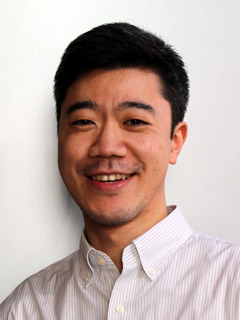HOW CAN WE HELP YOU? Call 1-800-TRY-CHOP
Choi Laboratory
We are hiring!
The Choi Laboratory is hiring. Interested individuals should email choip@email.chop.edu.
Alternative splicing is an essential mode of gene regulation that greatly diversifies the coding potential of the transcriptome. However, this process is often dysregulated in human cancer. Recent large-scale genomic surveys of multiple cancer types have identified somatic alterations in splicing factors and other RNA-binding proteins, demonstrating that global changes in RNA processing can play a significant role in tumorigenesis. Despite our ability to comprehensively detect the landscape of alternatively spliced transcripts through next-generation sequencing, it has remained difficult to predict much of the functional impact of aberrant splicing.
The Choi Lab aims to decipher how patterns of alternative splicing control cellular processes, and when perturbed, can lead to pathogenic states such as cancer. The research group is particularly interested in characterizing RNA-binding proteins known to be mutated in cancer and their functional role in alternative splicing and other steps in RNA processing. They are also interested in understanding how the expression of specific isoforms may regulate fundamental pathways involved in cell division and cell death.
To tackle these questions, the Choi Lab makes extensive use of genome editing to engineer faithful models of cancer-associated mutations and more rapidly characterize the function of alternatively spliced isoforms. They are also applying genome-wide CRISPR/Cas9 screens to identify genotype-specific dependencies in a systematic and unbiased fashion.

Peter S. Choi, PhD
Scientist
Dr. Choi's research focuses on the role of RNA-binding proteins in the regulation of alternative splicing and how mutations in these factors contribute to cancer. He uses a combination of genetically-engineered models and high-throughput approaches to better understand how alternative splicing influences cellular function and to identify potential opportunities for therapeutic intervention.